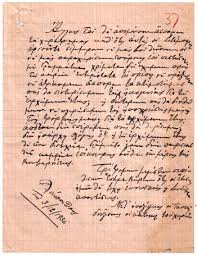
There are surprisingly few decisions in British Columbia relating to the appropriate amount of remuneration for an executor of a large estate.
Re Chau estate 2016 BCJ No. 2843 dealt with a $16 million estate which was comprised primarily of half an interest in a house, and liquid investments.
While the estate was somewhat complex, the administrator had the assistance of lawyers and accountants, making in effect the administrator’s job relatively straightforward.
The executor claimed remuneration of $400,000 on an interim passing of accounts, consisting of a capital fee of $289,500, being 1.8% of $16 million, and the care and management fee of $111,000.
The opposing party submitted that $60,000 would be generous and this was calculated on the basis of 176 hours of work at $340 an hour.
The court reviewed the case law and awarded $150,000 raised on a quantum meruit basis.
Thus it could be said that just because the estate is large does not entitle an executor to an automatic “lottery win”.
THE LAW
The criteria to be considered in determining the appropriate amount of remuneration has been well settled law for over 100 years as per the leading case of return Toronto General Trust Corp. v. Central Ontario Railway Company (1905) 6 OWR 350 at 354
The criteria are:-
1) the magnitude of the estate
2) the care and responsibility involved
3) the time occupied in administering the trust of the estate
4) the skill and ability displayed
5) the success achieved in the final result
Re McColl estate (1967) 65 WWR 110 is another leading case on executor remuneration, and held that when assessing interim accounts, it would be inappropriate to award the full 5% to an executor, as adequate allowance has to be made for work yet to be done in a continuing estate, or by a successor administrator.
Remuneration does not need to be fixed as a percentage of the gross aggregate value of the estate, it may be calculated on a lump sum, provided it does not exceed 5% of the total value of the estate- Re Turley Estate (1955) 16 WWR 72 ( BCSC)
S. 88 of the Trustee Act is the prevailing statute in this regard:
88.(1) states:
“ A trustee under a deed, settlement or will, an executor or administrator, a guardian appointed by any court, a testamentary guardian, or any other trustee, however the trust is created, is entitled to, and it is lawful for the Supreme Court, or registrar of that court if so, directed by the court, to allow him or her a fair and reasonable allowance, not exceeding 5% of the gross aggregate value, including capital and income, of all the assets of the estate, by way of remuneration for his or her care, pains in trouble and his or her time spent in and about the trusteeship, executorship, guardianship or administration of the estate and effects of vested in him or her under any will or grant of administration, and administering, disposing of an arranging and settling the same, and generally and arranging in settling the affairs of the estate as the court, or registrar of the court if so, directed by the court thinks proper.
88. (3)
“ A person entitled to an allowance under subsection 1 may apply annually to the Supreme Court for a care and management fee and the court may allow a fee not exceeding 0.4% of the average market value of the assets.”




